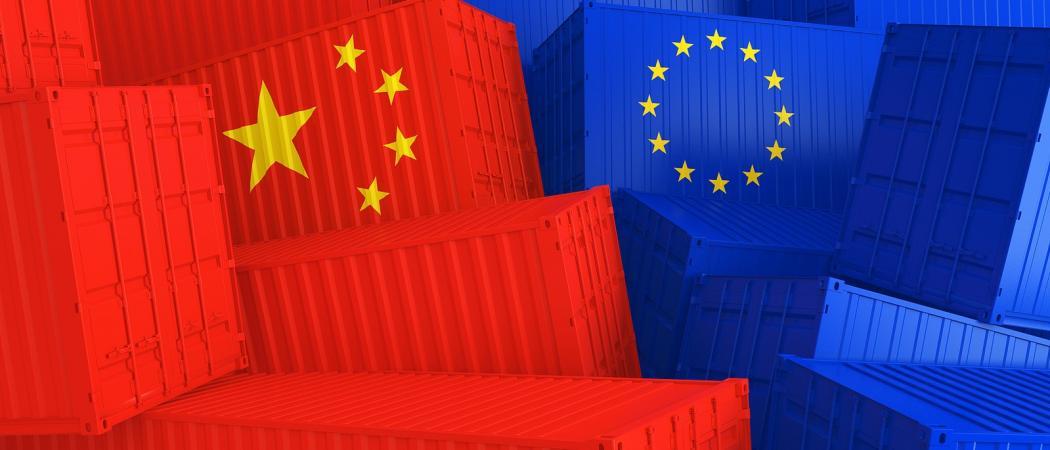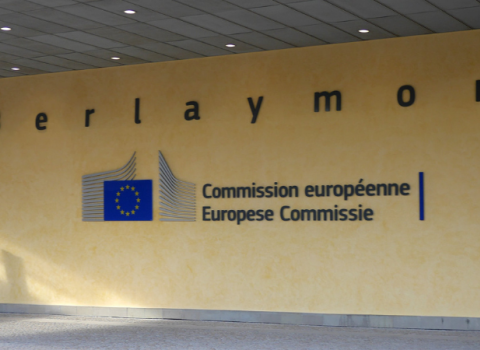Growing concern over China’s respect for fair play in science is making European researchers uneasy. The EU has new rules on joint projects and academics in Germany and the UK are questioning how close ties should be

Universities around the world are wrestling with what – if anything – to do about the scale of China’s influence on strategic industries and research fields.
Concerns about China’s authoritarian rulers are growing significantly in Europe, in light of what some see as the country’s obfuscation of the origins of COVID-19, the treatment of its Uighur Muslim minority, the crackdown in Hong Kong, and more general concerns about industrial espionage.
“Academic relations with China are becoming more politicised. Ten years ago, the mood was to extend collaboration with China. Now, while this is still happening, there’s pressure to justify it,” said Dominic Sachsenmaier, chair of modern China at the University of Göttingen.
In a hardening of Brussels’ stance towards Beijing, the bloc has recently drawn up rules that may be used to block Chinese entry into EU research programmes. Rules on foreign acquisitions of European companies were beefed-up this week, with state-backed Chinese predators in mind, while EU industry policy is now primarily aimed at achieving “strategic independence” from China.
In the US, meanwhile, president Donald Trump has made assailing Beijing a focal point of his time in office, leaving Chinese ties at a precarious juncture. Scientists and officials have raised concerns that the US government’s increased crackdown on foreign interference and espionage is unfairly focused on Chinese scientists.
Researchers warn that the global political pushback on China risks doing harm to academic freedom and choice. Not least among these concerns is who can afford to close the door on one of the world’s biggest science and technology investors.
“There can be instances where it might make sense to exclude international researchers from certain projects. But what we’ve seen in the US, for example, goes too far. I don’t think there’s any danger to labs from Chinese researchers, except in rare instances,” said Sachsenmaier.
Concerns over China’s influence on higher education are overcooked, argues Simon Marginson, professor of higher education at Oxford University.
“There’s nothing that prompts any change of stance on China. This is all about the US maintaining its leadership. The idea that everyone is a spy in China is just a fantasy, reality TV gone mad,” he says.
“A lot of my social science colleagues in China would like to see more freedom there – but the answer from us has to be to keep lines open, keep cooperating with them, and not shut them out. China has a deep intellectual culture. Their PISA [international league table of student assessment] results knock the socks off anyone else.”
“This is the US totally suppressing their right to exist academically. America wants to keep China in a box,” Marginson said.
Nor is this forceful US push on China likely to shift dramatically if Trump is replaced by Joe Biden in November’s presidential election, Marginson adds.
Tension between Washington and Beijing “has a long time to run. This is the new cold war. I think we’re in to this for 30 years,” he said.
New rules in UK
The UK on Thursday saw first-of-its-kind guidance issued to universities on how to tackle foreign interference and preserve the free flow of ideas. Among the recommendations issued by Universities UK, the umbrella body for 139 universities, are more training for researchers how to protect against intellectual property (IP) theft and new means of protecting students, with rules of confidentiality on seminars.
China is not named, but UK officials started warning of the dangers of universities’ links to China last year, when a report from the foreign affairs committee quoted evidence of Chinese pressure to prevent sensitive subjects such as Taiwan, Tibet, the crackdown on Uighur Muslims in the Xinjiang region, Tiananmen Square and civil rights in Hong Kong, being discussed on UK campuses. The report also alleged that the Chinese embassy in London routinely monitors students, a claim embassy officials denied.
Scrutiny of China, the UK’s third most important research partner, has grown in the past year. Last week, the parliament’s defence committee warned that the remaining presence of Huawei, China’s telecoms giant, in UK 5G networks until 2027 represented “a significant risk to individuals and government”.
Kerry Brown, professor of Chinese studies at King’s College London, is another academic wary of the growing focus on Beijing.
“I’m worried about the politicisation of China that we’re seeing. Our politicians are not immune from using issues for their own benefit. You’re exposed to another form of risk if you let them deeply interfere in the working of universities,” he said. Brown worked as first secretary at the British Embassy in Beijing from 1998 to 2005.
“It’s one thing to be terribly exercised and wound up. It’s another to be accurate,” he said.
“Politicians’ level of knowledge on China, on the whole, is not great,” he continued. “There is the danger of not being clear about what we think a risk is. It’s no good for UK universities to be paranoid,” said Brown.
China debate stirs in Germany
In Germany, politicians are beginning to question the close relationship between Chinese cultural institutions and German universities.
In September, the centre-right Free Democratic Party (FDP) said that it would introduce a motion to end German universities’ collaboration with the 19 Confucius Institutes throughout the country.
The motion, written by Bundestag member Jens Brandenburg, proposes to end state subsidies to Confucius Institutes and set up a commission to investigate how the Chinese government may be influencing how Chinese and German academics teach and research.
“We think German universities should have the financial resources to build institutions on Chinese language and culture without being monitored,” said Brandenburg. “We want to have this publicly debated, and to have more people be aware of this issue.”
The US State Department has already designated Confucius Institutes as foreign missions, saying they were part of “Beijing’s multifaceted propaganda efforts”, a move China denounced as “totally unacceptable.”
Formally, Confucius institutes work as language and cultural centres, much like the UK’s British Council and Spain’s Cervantes Institute. Unlike their European counterparts, Confucius institutes are almost exclusively located in university campuses around the world.
German academia has grown wary of Chinese influence in recent years. A 2017 analysis by the German Academic Exchange Service noted that since Xi Xinping came to power in 2013 Chinese universities have experienced a new wave of conformity, noting that “fear is spreading” among personnel. The German Rectors' Conference has also issued guidelines for universities which cooperate with Chinese universities.
The German government indicated it is aware of the Chinese Communist Party’s influence in a November 2019 reply to a question in parliament from the FDP, which Brandenburg says caused him to write the motion.
However, German academics working with Confucius Institutes say that the motion is without grounds and is only likely to damage scientific cooperation. In an August position paper, 13 Germany-based academics said that the institutes serve as “living examples of intercultural dialogue.”
The allegations of political influence are strongly rebuked by Markus Taube, director of the Institute of East Asian Studies at the University of Duisburg-Essen and a co-director of the Confucius Institute Metropolis Ruhr.
“The Confucius institutes have absolutely zero influence on our research,” he says. “There's a firewall between what we do in the university… and the Confucius Institute.”
He says that, as institutes, they are independent from the university and are often administered jointly by German and Chinese partner universities, as well as the host state and other businesses (the Confucius Institute at Duisburg Essen is under an association with over 20 partners in Germany).
This devolved structure makes them impossible to close at the federal level. “If Mr Brandenburg wants to close the Confucius institutes, he simply cannot do that by political will,” says Taube.
The programme at the Confucius institute is determined by three co-directors, who are in turn appointed by the University of Duisburg-Essen and Wuhan University. While Taube admits that the Chinese Communist Party may approve the final decision maker on the Chinese side, appointing a co-director must be unanimous.
He also disputes the notion that self-censorship could happen in Germany. “We're trying to explain what's happening there. We are not trying to excuse what's happening. There are many things which cannot be excused,” said Taube.
Opposition to these institutes reflect concerns that China will influence Germany’s education curriculum over time, said Sachsenmaier.
But he argues that there’s greater risk of this happening in central and eastern European countries, like the Czech Republic, where China has been seeking closer ties. Big investments in this part of Europe have fuelled questions as to whether the Chinese Communist party could seek to influence academia on the back of close relations with politicians and business.
“In transitional economies, influence from China is indeed being felt. But the scope to do this is limited in Germany, because institutes can’t do anything unless faculties agree,” Sachsenmaier said. “So I don’t think we’ll see a ban of the Confucius centres, even if it gives you a sense of the shifting climate here.”
For now, the motion is still to be formally submitted to the Bundestag. Even if it should fail, political doubts about Chinese influence on German academia are likely to remain.
“We need a more comprehensive approach on academic collaborations with China,” says Kai Gehring, education spokesperson for Alliance 90/The Greens in the Bundestag. While not wishing to prevent academic partnerships with Confucius Institutes, Gehring wants to see more transparency about their funding and employment policies.
“There are many more questions to address in this matter,” Gehring said, such as illegal transfers of German research, protecting Chinese exchange students from political pressure, and restrictions on German academics in China.
Czech scandal
Beijing’s potential to influence educational institutions is taken more seriously in Germany’s neighbour, the Czech Republic.
“We had quite a major storm involving Chinese interference at Charles University,” said Jakub Janda, director of the European Values Centre, a think-tank in Prague.
The scandal in 2019 involved secret Chinese payments to researchers in the university’s Centre for Security Policy. The head of the centre, Milos Balaban, was removed from his post after it was revealed his company had received payments from the Chinese embassy for organising conferences.
There’s now “a lot of interest in parliament about how funding from non-democratic countries should be disclosed”, said Janda, who researches Russian and Chinese influence operations.
China has proven itself a threat to academia, he says. “I haven’t seen attempts from the US to push topics out of curricula. You can’t say the same about China, which is attempting to influence curricula in many countries,” he said.
This is the first of two articles. With two weeks to go to the US presidential election, the next article on 20 October examines the US view of China’s rise to become a science superpower.





 A unique international forum for public research organisations and companies to connect their external engagement with strategic interests around their R&D system.
A unique international forum for public research organisations and companies to connect their external engagement with strategic interests around their R&D system.